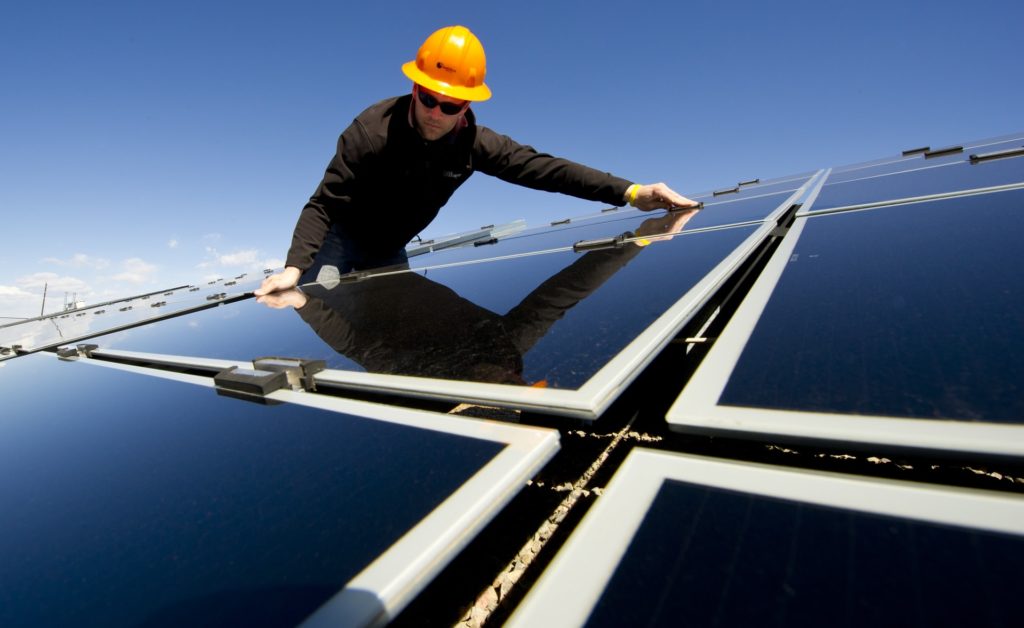Fluvius, the energy network manager for electricity and gas in all of Flanders, has discovered 5,300 illegal solar power installations, simply by examining aerial photographs.
Since 2015, owners of small-scale solar installations have been obliged to pay Fluvius what is known as a ‘prosument’ tariff, which allows them access to the electricity grid for those times when their own installation does not provide all of their electricity needs.
That involves the obligation to notify Fluvius of the installation, as well as its details. But some owners prefer not to pay, and not to notify.
The solution, according to Fluvius’ latest annual report, was to consult the aerial photos provided by Geopunt, a service provided by the Flemish government and available to all.
While websites like Google Street View allow us to wander the highways and byways of Belgium from our desks, solar installations, especially clandestine ones, are not usually front and centre. But the Geopunt photos allowed Fluvius to inspect back gardens and inner courtyards, as well as rooftops.
Related News
- Challenges and opportunities ahead as the EU aligns its Arctic policy with the European Green Deal
- Limburg court drops €13 million solar panel fraud case
Another useful tool was image recognition software, which allowed investigators to recognise solar panels even if they were being disguised as something else.
Finally, the manager has the power to carry out inspections of anything it considers to be an undeclared installation, simply on safety grounds.
In that way, Fluvius was able to uncover 5,300 illegal installations in Flanders alone. So far, 3,500 have been regularised, and the other 1,800 have proceedings under way. The network manager was able to recoup €2.6 million in unpaid tariffs.
Meanwhile, the largest form of fraud remains trafficking in green energy certificates.
Since 2015, owners of domestic solar installations no longer have a right to green energy certificates, a form of incentive that can be sold to energy providers for a rebate on the costs of installing solar panels.
However, the owners of large installations still receive the certificates, for an amount that depends on the date of the installation. The older the installation, the more valuable the certificates.
The fraud in this case comes in the form of falsifying the date of completion by forging inspection reports or invoices from installers.
Fluvius reports investigating 280 cases of suspected fraud by 232 owners, which resulted in the recovery of €5 million in certificates that were improperly obtained.

